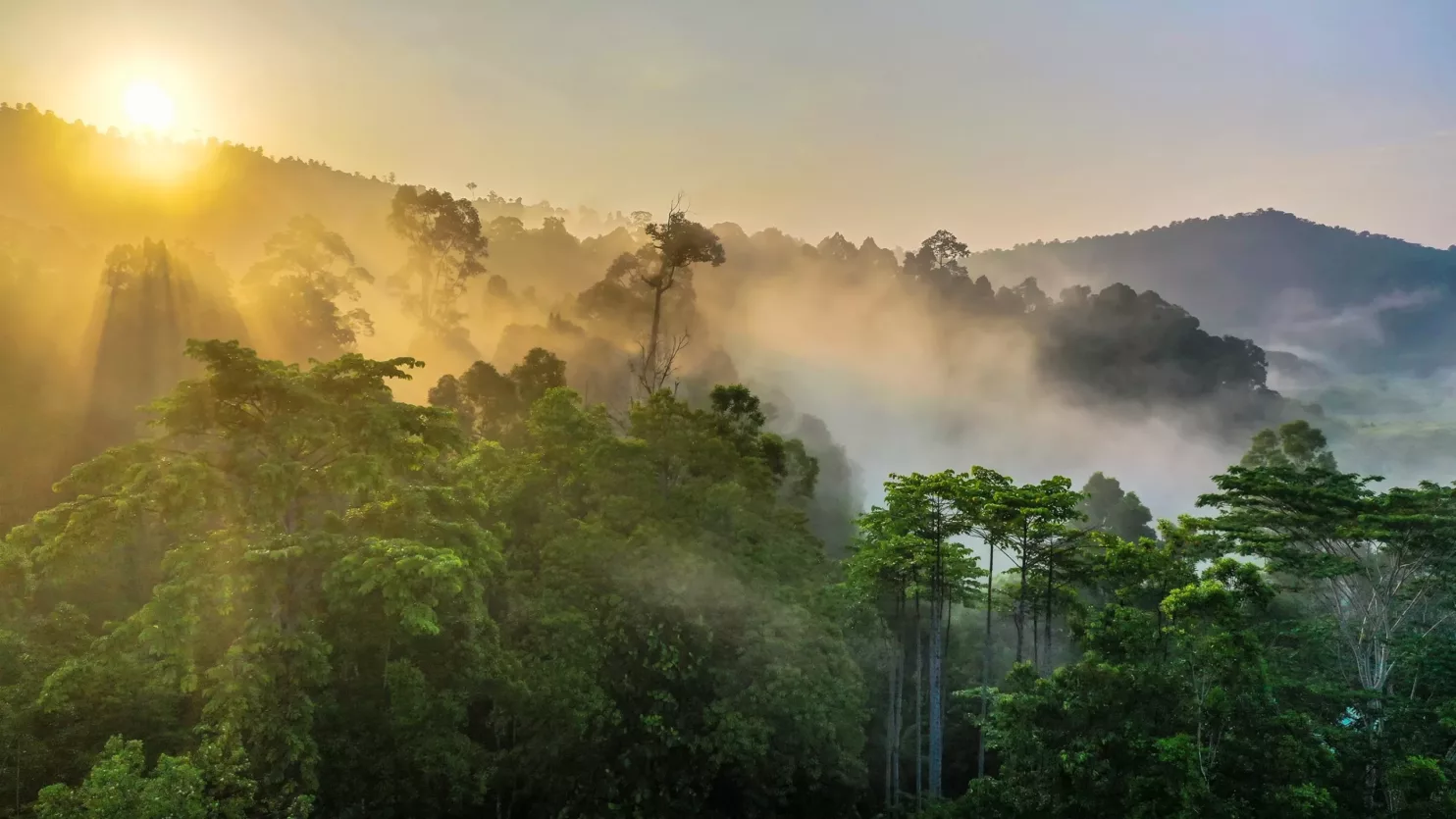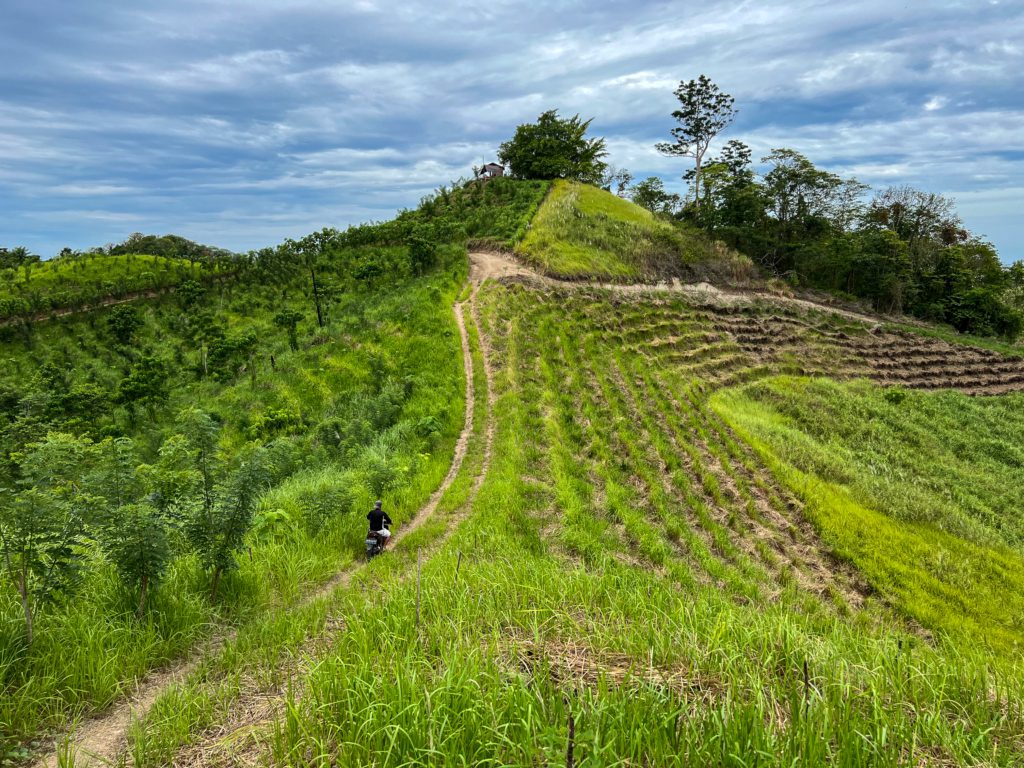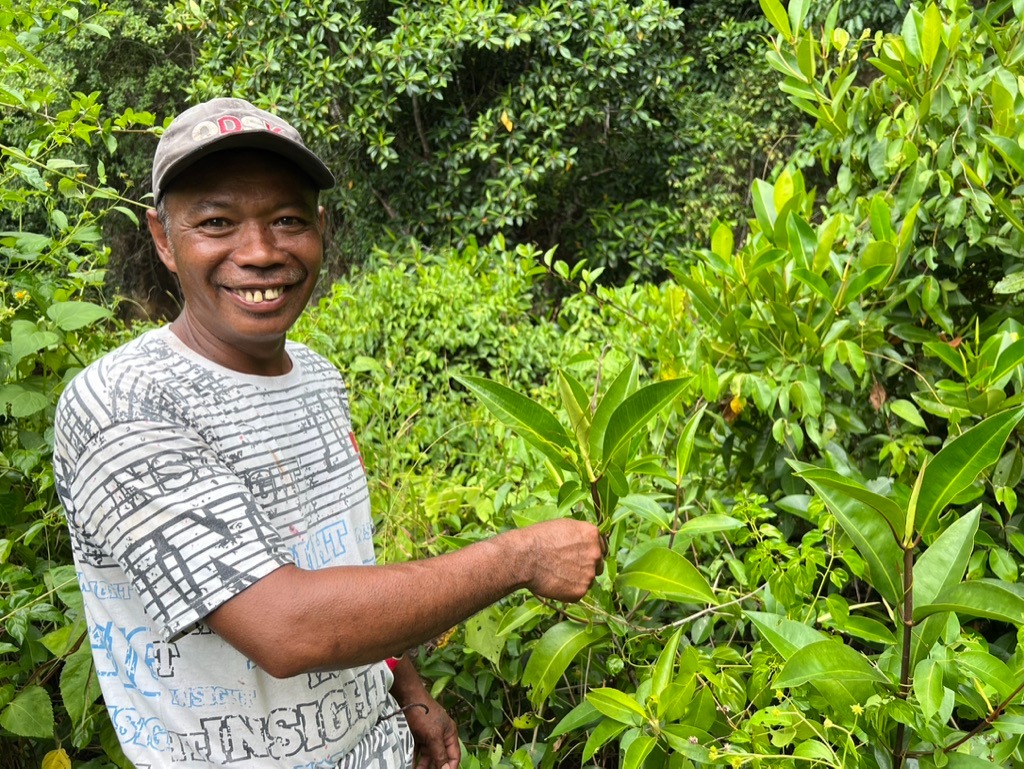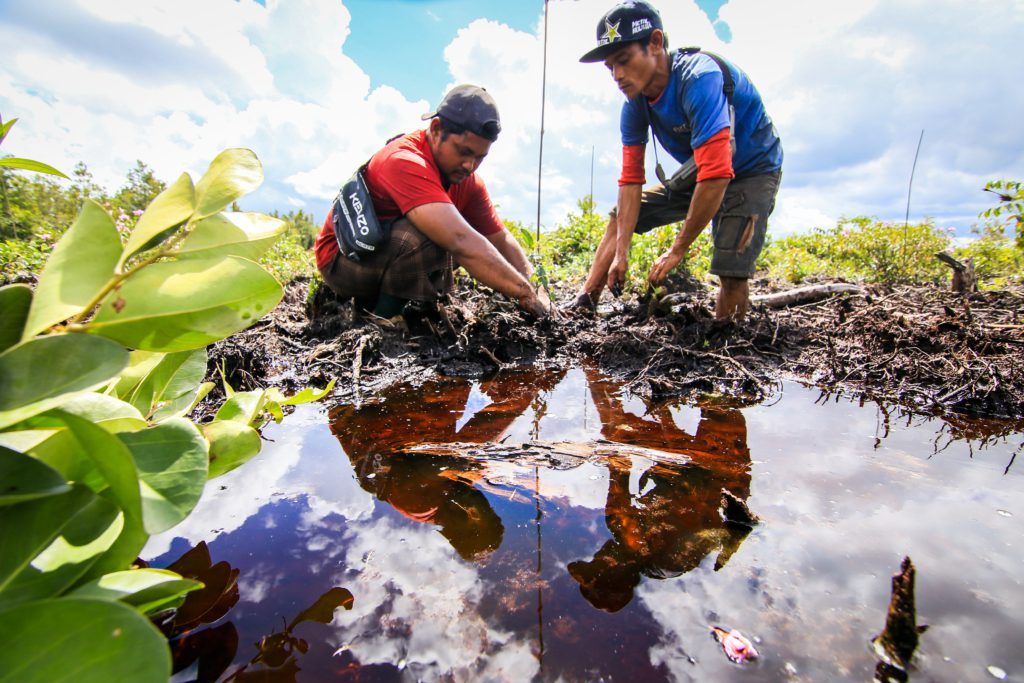El Niño is back: this is the way we prepare our Asia projects for extreme weather
01 August 2023

01 August 2023
With the arrival of El Niño, large parts of the world will have to confront extreme drought. One of the designated hotspots is Indonesia, where we support two forest projects. What measures are we taking in Borneo and Sulawesi, in order to prevent wildfire damage as much as possible?
Every two to seven years, the El Niño weather phenomenon causes ocean water in the Pacific along the Equator to warm up. These days the earth is warmer than usual, which often leads to record temperatures and extreme weather.
El Niño’s effects are noticeable the world over. Whereas, for instance, the southern United States and Eastern Africa have more rainfall, large parts of South America, Australia and Asia are hit by extreme drought.
In our forest projects in the Indonesian islands of Borneo and Sulawesi we are likely to meet with extreme weather conditions as well. Reason enough to take action, together with our project partners Masarang Foundation and Borneo Nature Foundation!

In our Sulawesi project we are transforming monotonous grass land into tropical rain forest. This is done together with our project partner Masarang Foundation.Willie Smits, Masarang initiator, and his team have been very busy in the project area these last few weeks. Not only busy planting trees – while they can, as it is still raining! – but especially making preparations for the arrival of El Niño.
In this matter top priority is given to limiting the risk of fire as much as possible. Says Willie: “These grass lands here are genuine seats of fire. Once they ignite, the grass is like gasoline and impossible to control!”
That is why the project team are laying out fire lanes in this area: strips of land from which all vegetation is removed, in order to stop the sea of flames from spreading to other parts of the project area. Ponds are dug to create extra water buffers, which can be used to extinguish fires very quickly.
Besides, Masarang, local authorities and police together have organized preventive meetings in surrounding villages. Local farmers are used to burning arable fields so as to release minerals. This is known as slash & burn.
The prospect of long term drought renders fires like those uncontrollable in areas as dry as dust. The outcome of these meetings is now that open fires are prohibited in the region. A milestone!

Meanwhile in Borneo, our project partner Borneo Foundation knows only too well what effects are caused by the combination of long term drought and wildfires.
The reafforestation project we support there is the follow-up to a gigantic fire which destroyed thousands of hectares of swamp forest in 2015. After the fire, ferns and grasses started growing rampantly there, making it impossible for the swamp forest to regenerate by itself. By means of planting indigenous trees, our project aims at making this recovery happen.
In order to prevent new fires, Borneo Foundation has instructed patrol teams. These teams consist of forest rangers and local citizens, who check the region every week for starting fires. Fire extinguishers have been bought and wells have been dug to be used whenever wildfire should approach.
One other measure we are taking in Borneo is raising the groundwater level in the area. Dry peat may burn for weeks. But keeping the area wet diminishes the risk of fire spreading underground. This is done by building dams so as to prevent water streaming out of the area. “In this way we strengthen the natural resistance of the forest”, says Smantha Salt of Borneo Nature Foundation.

Meanwhile in Sulawesi, planting still goes on in abundance. This is the season: tens of thousands of seedlings are waiting in our nursery to get planted. “But the rain may stop abruptly”, says Willie Smits. “Some researchers even predict that not a single drop will fall for a whole year.”
If the rains will indeed cease to fall next week, the project team will keep the young trees in the nursery. Masarang would not want to risk a large proportion of the plantation to die of drought.
We at Trees for All would back such a decision, should it be necessary. For us quality surpasses quantity. What is more, both Masarang and Borneo Foundation have worked in the project areas for dozens of years. So they know like no other what drought and fire can do to a forest.

Would you like to contribute to living in a world full of trees? Plant them with us. For every tree planted in the Netherlands, we plant a tree abroad.
Plant with us